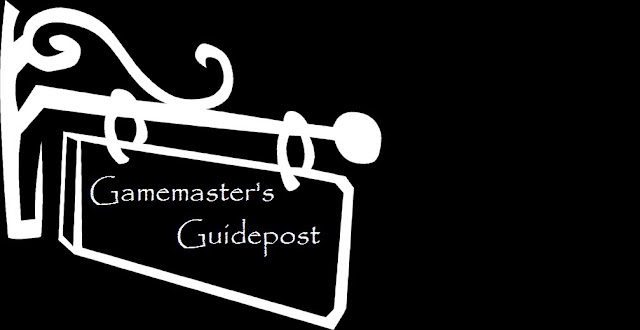One of the things that shocked me the most when I was talking perspective players for Aeon was the completely lack of knowledge regarding using the rules for having a Adversary (see p. B493). Mind you, it’s only a couple of paragraphs, but when I first read GURPS 4th edition this was a eye-opening passage. The thought that I could have a player who was essentially a co-GM, but not all the time was so appealing I instantly began coaching my other half in the various GURPS rules so she could fulfill the role. That was ten years ago and I haven’t ever regretted the decision. So what exactly is an Adversary? the Basic Set calls it a player who occasionally takes on the roles of NPCs who play an “adversarial” role. Now, while that is quite useful if you have a player who can perform properly in his role, expanding it outward can save the GM a huge amount of time. Adversaries in my games have expanded roles (see below) and I tend to reward the player who does this with leeway for their own characters or enhanced character point awards – though this is not required.
Adversaries in my games fulfill the following roles:
- Act as co-GM if I have a large player base and need to split the party up. I give the Adversary a general idea of what I want done and then let them have free rein.
- Act as a specific NPC when I don’t want my GM knowledge interfering or coloring decisions the NPC must make.
- Act as a “minutes-taker” for session records-keeping.
- Act as a sounding-board between sessions so I can figure out where I want the game to go.
- Create NPCs, gear, etc. as needed to free me up so I can look at the big picture more
This may not seem like a lot, but after a way I can tell you that your games will improve. Having a adversary is like having an extra core on your computer’s CPU – you don’t know how awesome it is until you have one and then go without. Besides, training an Adversary is a lot like training a GM and if you have a good enough rapport with your Adversary you can switch between Gamemaster and Adversary roles at will.


I'm specifically hearing angels sing at "Act as a specific NPC when I don't want my GM knowledge interfering or coloring decisions the NPC must make."
That's hard for me and I suppose hard for every GM; you can't actually know what you might be allowing to color your thinking until you see what someone else thinks.
Yeah, pretty much. It's supremely useful if you can get a good adversary triained up.
I've used an adversary in the past, but not as a co-GM. More as a remote "tell me what this NPC does" kind of helper:
http://dungeonfantastic.blogspot.com/2012/11/a-tale-of-two-adversary-players.html